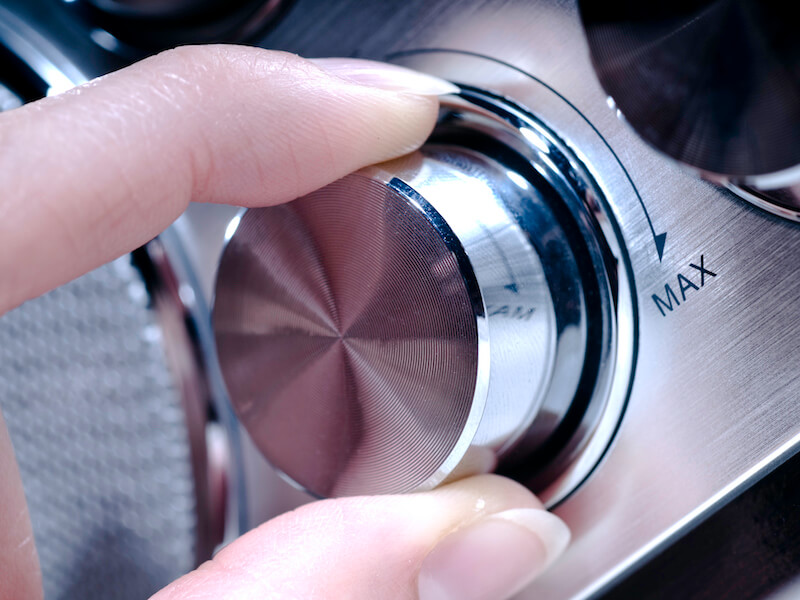
In some cases, it’s easy to know when you require medical advice. When you break your leg, for instance, you know you should go to the doctor (or the emergency room, depending on the situation). With situations like this, simply “toughing it out” isn’t an option. If you want your bones to mend properly, you need to get them taken care of as soon as you can.
But in terms of hearing aids, it’s not always so simple to recognize when it’s time to get some help. Hearing loss is typically a developing condition. That means it isn’t always easy to know when you may need to start using hearing aids or to put off finding treatment you know could be helpful.
That’s why it’s a good plan to watch out for some particular signposts that you might be losing your ability to communicate. It’s likely time to call us for a consultation if you do notice any.
Hearing aids and hearing loss
Hearing aids are the primary method of treatment for hearing loss. But that doesn’t mean everybody who has hearing loss will immediately need a set of hearing aids. Hearing aids won’t always be helpful in cases of mild hearing loss. We may want you to hold off on using hearing aids as a result. It’s also possible that we could advise you to only use your hearing aids when you’re in certain situations.
Essentially, the threshold for needing hearing aids isn’t always a diagnosis of hearing loss.
But in many situations hearing aids will be the best answer. Many individuals won’t have their hearing loss diagnosed until it becomes more serious because hearing loss develops slowly and frequently goes undetected for a while. Getting your hearing examined regularly is the key to catching hearing loss early and possibly mitigating the need for hearing aids.
And if that’s the situation, you’re probably thinking: how can I tell if I need hearing aids?
You need hearing aids if you recognize these signs
Immediate communication issues can be the result of hearing loss. The interesting thing, though, is that you don’t always understand that those communication difficulties are the result of hearing loss. So, when is it time for a hearing aid?
Look out for these indicators:
- When people speak, you can’t always understand what they said: Many people don’t think they have hearing loss or need hearing aids because the overall volume they hear seems fine. But hearing loss is funny, it tends to impact specific frequencies before others. Due to this, things like vowel sounds in the higher register can sound distorted. This could cause you to have a tough time making out what people are saying.
- Phone conversations sound muffled: Even the highest quality phone speakers have a habit of flattening a voice. If you have hearing loss, this can make it even harder to understand conversations. Again, particular frequencies are cut out and the outcome is that it’s really hard to hear those voices.
- When you’re in very loud settings, you have a tough time following conversations: When people ask, “What are the signs of hearing loss?”, this one is almost always mentioned. If you have a hard time hearing conversations in noisy places, that’s usually a sure sign that you have hearing loss. That’s because your brain has difficulty filling in the missing information that gets lost with hearing impairment. A lot of conversations get muffled because of this.
- You listen to the radio or TV at really loud volumes: Hearing loss could be the culprit if you continually need to crank the volume of your devices up. This is especially true if you keep moving that volume knob higher (and even more especially true if the people around you complain about how loud your media is).
So how should you deal with it?
When you break a bone, it’s clear cut what to do: you go to the doctor! But what do you do when you begin to experience the symptoms of hearing loss? How bad does hearing loss need to be to call for a hearing aid? Well, that’s difficult to answer, but when you begin noticing these signs, it’s a good idea to make an appointment with us. We’ll be able to evaluate the health of your hearing and determine just how serious your hearing loss may or may not be.
And if you do wind up needing hearing aids, a hearing assessment will help determine the best device for your hearing needs. This means you’ll be able to get back to spending quality time with your friends and family, you’ll understand your grandkids when they call you on the phone, your co-workers at your morning meeting, and your friends at the pub.
Call us for a hearing exam so we can help you improve your quality of life.